Becoming a Leader Who Multiplies the Abilities of Your People
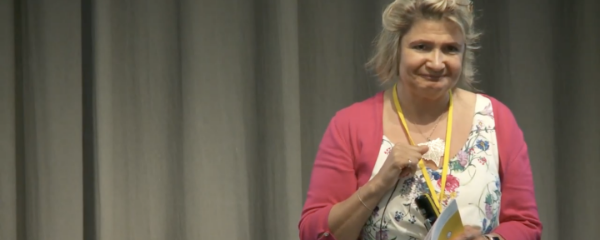
Have you ever worked for someone whose leadership made you feel smarter and more capable? Happy’s Cathy Busani understands the advantages of leaders who’re able multiply the abilities of their people.
Speaking at the 2018 Happy Workplaces conference, Cathy draws from Liz Wiseman’s book, Multipliers: How the Best leaders Make Everyone Smarter, to illustrate how to become a multiplier of others. Watch the complete talk below.
How to Delegate Tasks Successfully
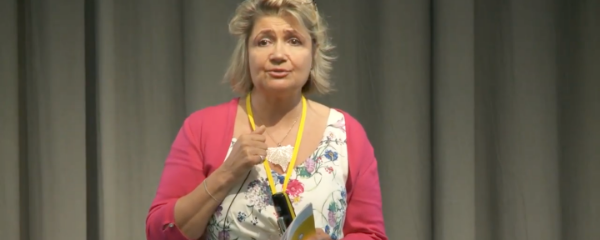
Many leaders and managers will continually delegate tasks to the person they know will get it right every time, or else give things to a new recruit who’s full of beans and eager to please. But Happy’s Cathy Busani knows this practice is flawed and has instead started delegating to the team and allowing them to decide who does what.
In this two-minute video from the 2018 Happy Workplaces Conference, Cathy explains how to delegate tasks successfully.
Best Practices From One of the Happiest Countries in the World
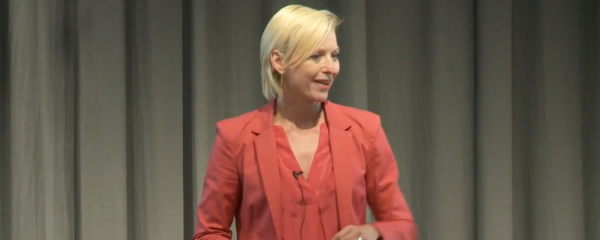
Try locating the word ‘workhappiness’ in the English dictionary. You won’t find it. In Danish, however, there is a word for this condition – arbejdsglaede. Woohoo inc claim to be the happiness-at-work experts. Arlette Bentzen is the Danish company’s Chief Happiness Officer, meaning there’s no one better positioned to give tips on attaining arbejdsglaede.
Watch Arlette’s full presentation at the 2018 Happy Workplaces Conference, in which she offers three work-happiness tips derived from some of Denmark’s most progressive workplaces.
Show a Colleague You Care With Random Acts of Kindness
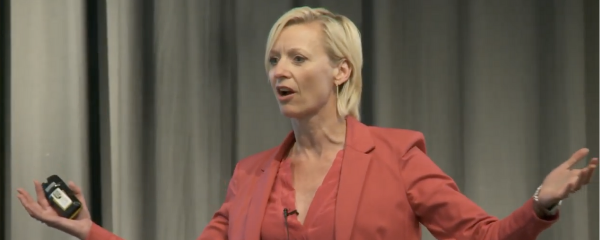
During her presentation at the 2018 Happy Workplaces conference, Woohoo inc’s Arlette Bentzen underlined how random acts of kindness can be effective in enhancing total workplace happiness.
In this short video, Arlette explains the principle is very simple: do something nice for your colleagues and they’ll become happier.
WorldBlu CEO Traci Fenton Underlines the Three Things Required to Create a Freedom-Centred Culture

WorldBlu CEO Traci Fenton believes we’re all meant to live our fullest potential. Through WorldBlu, Traci’s spent the last two decades working with clients in 80 countries, teaching them freedom at work.
In this short video from the 2019 Happy Workplaces Conference Traci explains that a freedom-centred mindset is essential for building a freedom-centred culture. “The root issue that stops world-class cultures from happening is fear. It’s the number one thing,” she says.
Why Happy’s Henry Stewart Stopped Making Leadership Decisions

Over the last couple of years, Happy has undergone a transformation. Happy was losing a lot of money a couple of years ago, but thanks to the transformation the London training company went from £185k loss to £166k profit in the space of one year.
In this short video from the 2019 Happy Workplaces Conference, Chief Happiness Officer Henry Stewart explains that he took inspiration from David Marquet, a leadership expert and former commander of the nuclear-powered submarine, USS Santa Fe.
Marquet says, “If you want your people to think, don’t give instructions, give intent.” Henry followed suit. “It isn’t enough to not be the tyrant; you have to step out,” he says.
Let’s Get Real On Empowering Our People

Over the last couple of years, Happy has undergone a transformation. Why? Because as chief happiness officer Henry Stewart revealed at the beginning of his talk at the 2019 Happy Workplaces Conference, Happy was losing a lot of money.
Assessing the financial downturn, Henry and his leadership team realised they’d lost sight of some core principles. So instead of cutting things and getting more hierarchical, the turnaround was made possible by revisiting their core principles and acting in accordance.
One thing that Henry decided to do is make no decisions. Find out why in this video.
10 Great Examples From Some of the Most Democratic Workplaces on the Planet

Since a young age, WorldBlu CEO Traci Fenton has believed we’re all meant to live our fullest potential. At university Traci came to the conclusion that democracy, in its truest manifestation, is a system of organisation that can release people’s fullest potential. WorldBlu was subsequently created and over the last two decades Traci’s worked with clients in 80 countries, teaching them freedom at work.
WorldBlu’s freedom at work model directly opposes fear-based work cultures. There are three crucial components to the freedom-centred approach. The first is a freedom-centred mindset. The second is freedom-centred leadership—leaders with a fear-based mindset create command and control management structures. To build freedom-centred cultures, Traci says top leadership must have high self-worth. “Self-worth is being secure with who you are,” she says.
The final component is organisational design, which was the focus of Traci’s talk at the 2019 Happy Workplaces conference. Watch the complete talk in the video below.
Creating Great Customer Experience Through Happy Workplaces
Sarah Metcalfe is Head of Customer Service at Sure Petcare and she knows that a happy workplace is essential for enhancing the customer experience. Sarah points to research indicating that by 2020, 90% of customers will be choosing where they do business based on the customer experience. To achieve a net promoter score of around 9 or 10, it takes a human going to great lengths.
“That’s where you have the difference between an OK experience and an amazing one,” says Sarah. It all starts with the people who’re providing the service.
In this full length video from the 2019 Happy Workplaces Conference, Sarah explains how Sure Petcare have created an environment that allows people to bring their whole selves to work.
At Sure Petcare, a Happy Workplace is More About What Leadership Doesn’t Do
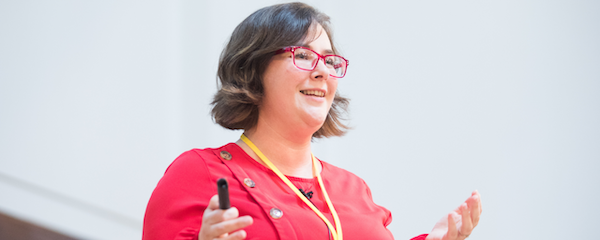
Sarah Metcalfe is Head of Customer Service at Sure Petcare and she knows that a happy workplace is essential for enhancing the customer experience. When she asked her team, “what makes you happy at work?” what stood out was that it’s really more about what leadership doesn’t do.
For example, they don’t impose SLAs or metrics. They don’t get mad if staff are late because they’re stuck in traffic. They don’t measure people and don’t ask them how long they’re going to be on the phone for.
In this short video from the 2019 Happy Workplaces Conference, Sarah explains what gives her team the ability to do whatever it takes to make the customer happy.





